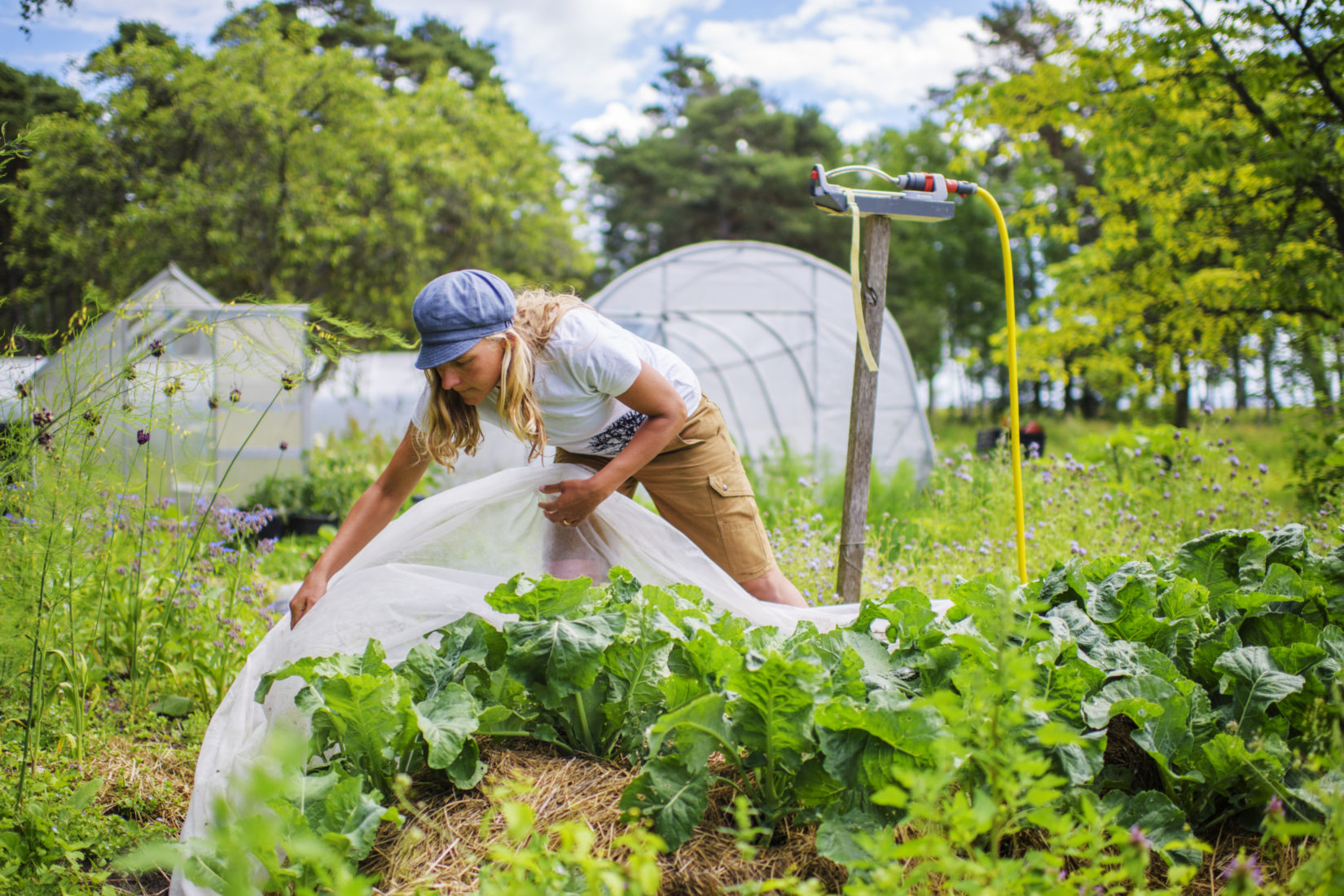At Rosendals Garden in Stockholm, there is a 2,000 square meter garden that visitors can step into and experience how food for one person grows for one year.
Sofi Gerber, the project manager of 2000m2 Baltic and research leader at the Swedish Biodynamic Research Institute, says we must collaborate and find new solutions “from farm to fork”.
– If we share the cultivable area on earth with the number of people on the planet, we get 2,000 square meters per person. In Sweden we use twice as much for our food consumption.
The goal of the project is to raise awareness of how our food consumption affects what we grow, how and on what space, explains Sofi Gerber.
– We want to show that a changeover can take place in an enjoyable, healthy and innovative way. In a viable agriculture, crops that are nourishing to humans, animals and soils are interspersed. In this way we give back at least as much as we take from earth and still receive a varied diet.
The 2000m2 Baltic project is one of several examples of projects funded by the Swedish Institute about food production in the Baltic Sea region.
Södertälje Municipality, south of Stockholm, is currently running the Diets for a Green Planet project. Maria Micha, the project manager, thinks that the international dimension, with cooperation across national borders, is valuable.
– It gives us perspective on our own work and the debate around these things in Sweden.
Not least, personal contacts are important, says Maria Micha.
– It’s nice to have contact with people who work for the same thing in a different context, it gives a sense of belonging, humility and strength.
Because the environmental impact of the food production on the Baltic Sea is so big, it is necessary to work together, says Maria Micha.
– By developing joint strategies for sustainable food production and responsible consumption, we can influence the development around the Baltic Sea. And that development will also have an impact on our health, the climate and the landscapes we want to live in.
Åsa Lundmark at the Swedish Institute sees great benefits from collaborations in the Baltic Sea region on food:
– Food production is one of several areas where we think there is much to gain from working together. There is a great desire for innovative thinking and solid knowledge in the Baltic Sea region. Our hope and conviction is that the projects in progress around the Baltic Sea will contribute to a more sustainable food production in the future.
Facts
The projects 200m2 Baltic and Diets for a Green Planet are funded by SI through the funding scheme “Seed funding for cooperation projects in the Baltic Sea region”.
SI provides funding for joint projects in which organisations based in Sweden can start and expand collaborations to meet transnational challenges together with organisations from the Baltic Sea region countries including Russia and the countries of the EU Eastern Partnership.
